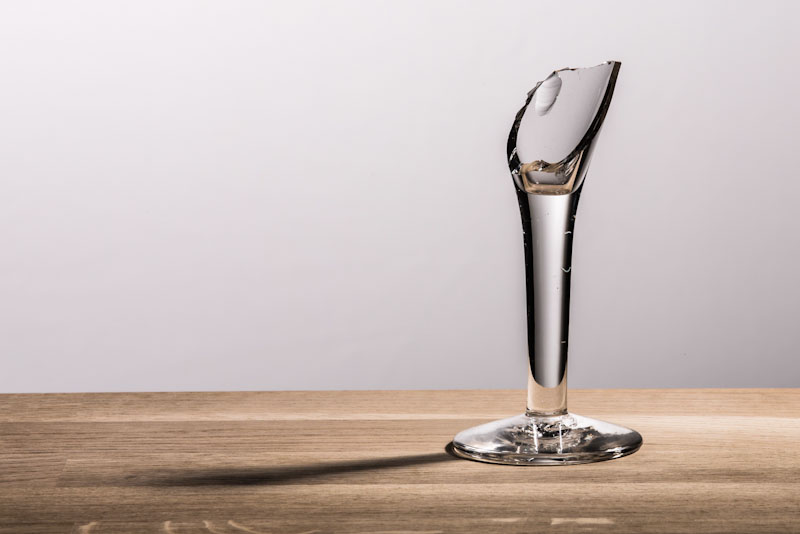The Health Myth of Alcohol in Moderation?
For decades, studies claimed that some alcohol consumption carried health benefits, but a new analysis finds their methodology was often flawed. Other recent research concludes no amount of alcohol is safe

A popular understanding of alcohol and health was born with the airing of a TV segment 32 years ago. On “60 Minutes,” Morley Safer introduced Americans to the “French paradox”: The diet of the French was high in saturated fats from foods like brie and pâté, yet the French were less likely to suffer heart problems. One of the purported reasons? Red wine in moderation.
The idea that alcohol could be good for you was not entirely new. Some researchers had suggested for years that the correlation between alcohol use and mortality followed a J-shaped curve, meaning that mortality rates dipped when consumption rose from none to moderate, then increased sharply with high alcohol consumption. But it was the French paradox and the concept of the Mediterranean diet that captured the American imagination (and sent wine sales soaring).
The question, however, lingered: Is alcohol in moderation truly good for your health? A new meta-analysis conducted by the Canadian Institute for Substance Use Research, published March 31 in JAMA Network Open, has attempted to answer it with more comprehensive data than perhaps any previous study. The systematic review encompasses 107 alcohol and health studies dating back to 1980, including more than 4.8 million participants.
Using all this research and adjusting for old biases and errors, the authors asked, what is the actual connection between alcohol use and mortality?
A Fresh Look at Old Studies on Alcohol and Health
There is no splashy name for the findings this time around, but the conclusion is clear: “Low-volume alcohol drinking was not associated with protection against death from all causes.” Moderate alcohol use offered no overall benefits in longevity and mortality versus lifelong sobriety.
The researchers used a threshold for moderation of 25 grams of ethanol per day in this analysis, a bit less than two standard drinks (which is higher than the limit the U.S. Food and Drug Administration recommends for women). They further determined that rates of dying prematurely increased significantly for women at more than 25 grams per day and for men at more than 45 grams, or about three drinks.
When the 107 earlier studies were reevaluated, “lo and behold, the supposed health benefits of drinking shrink dramatically, and become non–statistically significant,” said Dr. Tim Stockwell, one of the study authors, in The New York Times.
How did previous researchers miss this? Most of the studies were constrained by limitations in methodology; some were outright flawed. Study participants who reported light or moderate alcohol use tended to have unrelated advantages associated with better health, in areas like diet, exercise, dental hygiene and financial resources. Many studies focused on older populations, which have already reached a level of longevity. In other words, they did not factor in adults who died younger.
Perhaps the most widespread problem the Canadian researchers found was “abstainer biases.” The “abstainers” in most of the 107 studies who were compared with moderate drinkers included occasional and former drinkers. Former drinkers are often people who have quit because they have health problems, not the other way around. Of the 107 studies, 86 were marred by such abstainer biases.
Another way of phrasing the conclusions: “Daily low or moderate alcohol intake was not significantly associated with all-cause mortality risk.” That is neither good nor bad news for people who use alcohol in moderation.
But whereas older studies may have overstated any health benefits of moderate consumption, newer studies are beginning to paint a different picture — that any alcohol use carries risk.
New Research Aims To Clarify Alcohol Risks
In 2022, a team from the University of Pennsylvania published research linking just one drink per day with decreased brain volume, following a study that included 36,000 participants. In 50-year-olds, the difference in consumption between half a drink and one drink per day was associated with brain changes equivalent to two years of aging. The brain difference between zero and four drinks mirrored more than 10 years of aging.
“It’s not linear,” said coauthor Remi Daviet, in Penn Today. “It gets worse the more you drink.”
Another study of alcohol and dementia risks in South Korea, published in JAMA Network Open in February 2023, found that those who cut back from high to moderate or mild levels of alcohol use significantly improved their chances of avoiding dementia, with an 8% decrease in risk of all forms of dementia and a 12% decrease in risk of Alzheimer’s disease.
That study tracked 4 million people and found the “moderate” camp to be at a lower risk than abstainers, though the authors acknowledged abstainer bias could be present. “People who do not currently drink alcohol should not be encouraged to start as a way to reduce dementia risk,” said coauthor Dr. Keun Hye Jeon in an NPR interview explaining the findings.
The most uncompromising statement on alcohol and health in recent months came in the form of a press release from the World Health Organization. Following an article WHO scientists published in The Lancet Public Health journal in January, the WHO summed it up plainly: “When it comes to alcohol consumption, there is no safe amount that does not affect health.”
The WHO researchers didn’t pull punches in the Lancet article, which focused on the correlation between alcohol and cancer. Alcohol “is a toxic, psychoactive and dependence-producing substance and a Group 1 carcinogen that is causally linked to seven types of cancer, including esophagus, liver, colorectal and breast cancers. Alcohol consumption is associated with 740,000 new cancer cases each year globally,” they wrote. (Other Group 1 carcinogens include tobacco and radiation.)
In the WHO’s European region of focus, half of all alcohol-related cancers were linked to light or moderate consumption, including the majority of alcohol-attributable breast cancers in women.
“The risk to the drinker’s health starts from the first drop of any alcoholic beverage,” said Dr. Carina Ferreira-Borges, advisor for alcohol and illicit drugs in the WHO regional office for Europe. “The only thing that we can say for sure is that the more you drink, the more harmful it is — or, in other words, the less you drink, the safer it is.”
There may never be a final word on alcohol and health. But if you think sobriety might be healthier for you, you’ve got nothing to lose by trying out the sober lifestyle. To channel those old commercials: It worked for us!
More Help & Information
Does the 'Pink Cloud' of New Sobriety Help or Hurt? It's Complicated
The euphoria of early recovery may be fleeting, but long-lasting balance is the goal. Here's how to keep your head up through the process and handle reality with confidence.
Sobriety vs. Recovery: What's the Difference?
Are the concepts themselves up for debate? Do they require certain treatments, or abstinence from everything? It's complicated! And new ways of thinking are changing the conversation.
Now Elite NFL Players, They First Tackled Addiction | News Roundup
All Sober compiles the best of the latest headlines. Here's your addiction and recovery news for the week of Feb. 19, 2024!
Help Them Help You: Explaining Your Mental Health to Your Family
Your mental health can affect — and be affected by — your loved ones. Here's how to discuss it with them so everyone can heal.
Dry January (and Beyond): The Possibilities Are Endless
There's never been a better time to go sober. Whether you're trying it out this month or already living the life, join us for some tips, ideas, inspiration — and maybe even new friends.
Sober Holiday Tips: Meeting 'Share-a-Thons'
Need to get out of the house for a bit and see some friendly sober faces? Recovery support group meeting marathons run 24/7 from Christmas Eve through New Year's Day.
What Happens After an Intervention?
Your loved one agreed to get treatment for addiction during their intervention — or not. Here's what you need to know about what comes next.
We're in This Together: Building a Healthy Sober Support Network
You are the captain of your recovery, but you don't have to do it alone. A sober support network will lift you up in tough times and celebrate your triumphs.











